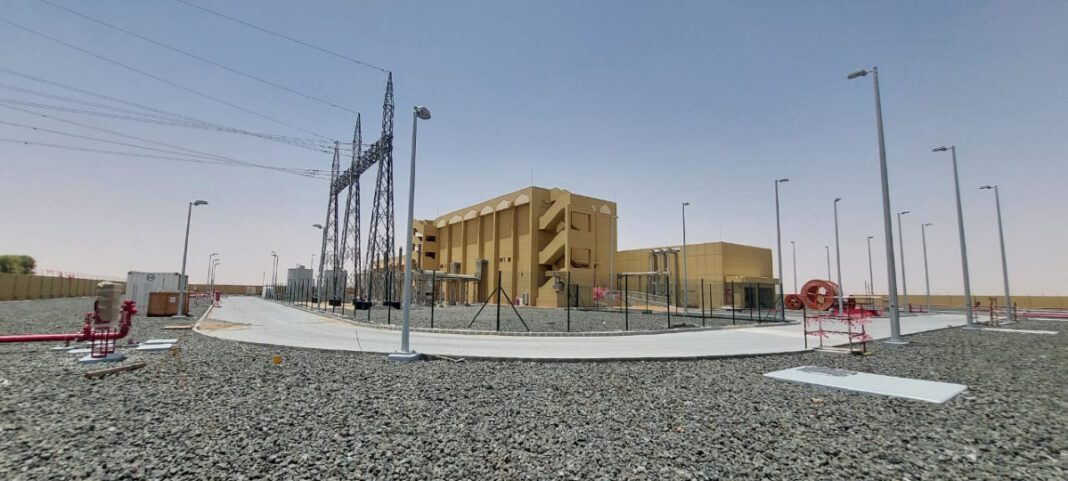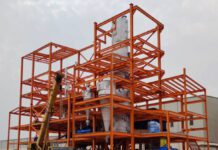The 220/33 kV substation in Al Faqaa, Abu Dhabi is among the first Extra High Voltage Projects being constructed on an EPC basis by KEC. While KEC has a vast footprint in the execution of EPC contracts in the Transmission & Distribution sector in India and globally, this project, built using pre-engineered building (PEB) technology, marks the company’s entry into the Middle East region as an EPC Contractor for substation projects. KEC is already an established contractor for OHL projects across Middle Eastern countries with a proven track record of completing critical projects in Saudi Arabia, Oman, Kuwait, and UAE.
The project includes the design, manufacturing, supply, construction, erection, testing and commissioning of EHV equipment like 220 kV GIS, 33 kV GIS, 220/33 kV Power Transformers along with control and protection systems, and SCMS systems. The project is located in the Al Ain region of Abu Dhabi and close to the Al Ain-Dubai Border. The project was planned by the End User TRANSCO, Abu Dhabi to provide power supply to the master developer Wahat Al Zabeya, who is planning a 22.7 million sq m master development in the area comprising residential homes with a host of other developments, such as a desert resort, internationally affiliated educational institutes, world-class healthcare facilities including hospitals and diagnostic centres, retail malls and shops.
Pre-engineered buildings (PEBs) offer several advantages for construction in remote locations. As they are manufactured off-site and assembled on-site, it significantly reduces construction time. The streamlined manufacturing process and reduced labour requirements make PEBs more cost-effective compared to traditional methods. Moreover, PEBs are produced in controlled factory environments, ensuring high precision and durability. And they provide great flexibility and scalability, allowing for easy expansion or modification.
The environmental benefits of PEBs extend beyond their recyclable materials. Their lightweight components and low-maintenance design make them practical and a sustainable option for remote locations. Overall, PEBs offer a practical, efficient, and sustainable solution for remote construction challenges.
“The construction of the substation has been extremely challenging given the remote location surrounded by desert and harsh climatic conditions. The location lies 10 km away from the nearest road and hence, transportation of raw materials like concrete, and steel required for the construction of the substation has been challenging and costly. The remote location also means that the list of suppliers who are willing to supply the required materials gets truncated. To overcome local suppliers closer to the project location had to be identified rather than relying on established suppliers who were primarily Dubai or Abu Dhabi City based. This also meant that the new suppliers had to be made aware and well-versed in the end-user requirements, of which they had no prior knowledge or experience.”
– Vivek Patole, Vice President, Engineering (Civil and Structural), KEC International Ltd





